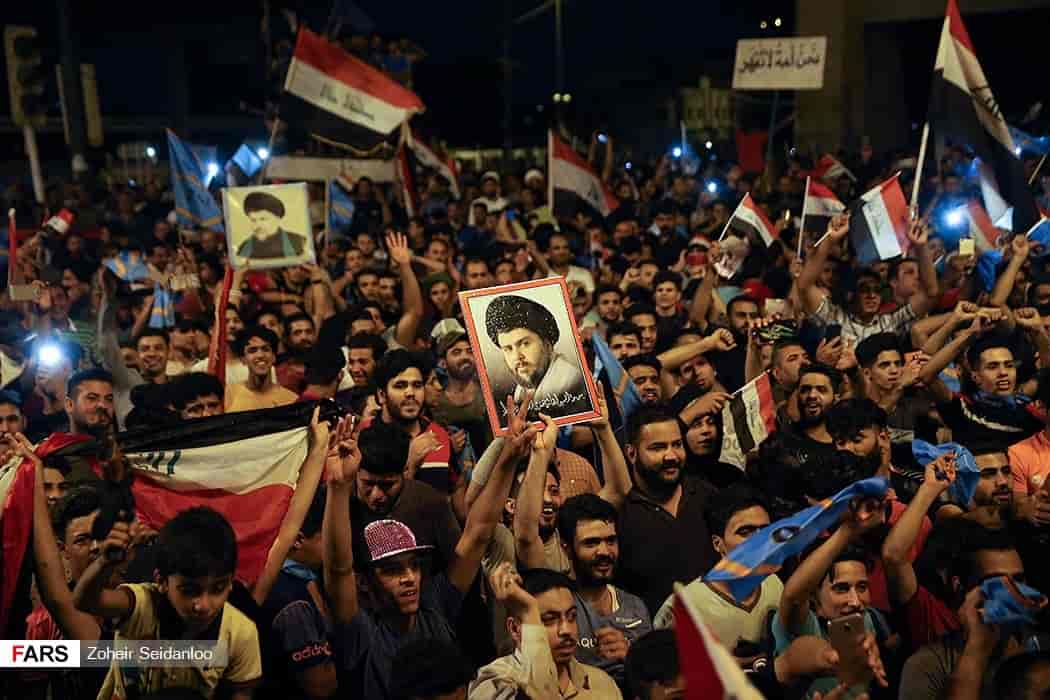It took only twenty-four hours for Iraqi cleric Muqtada Sadr, the winner of Iraq’s last parliamentary elections, to show his strength on the streets of Baghdad and other Iraqi cities. At least 34 deaths and more than 250 injuries were caused by the violence unleashed by thousands of his supporters after Sadr announced his withdrawal from politics due to frustration with the alleged political machinations of his opponents.
The announcement came after Sadr failed to form a government even nearly a year after the elections and, in addition, an Iraqi court ruled to suspend the presidential candidacy of Hoshyar Zebari, who was backed by a broad alliance of Sunni MPs, the Kurdish Democratic Party, and Sadr’s own movement. Zebari, an ethnic Kurd, was previously the country’s longest-serving foreign minister, frequently meeting with Western diplomats and journalists and maintaining strong ties with neighboring Arab states. But his bid to round off his political career by running for president hit a snag last week when an Iraqi federal court suspended his candidacy over corruption allegations. This has caused the elections to be postponed indefinitely and may further deepen existing divisions between Iraq’s factions.
For Sadr, this was the last straw. As other parties tried to form a new government after Sadr’s resignation, Sadr loyalists staged protests outside government buildings and, at one point, even occupied parliament and stormed Baghdad’s heavily fortified Green Zone, where government buildings and diplomatic missions are located. This led to a bloody 24 hours of violence until Sadr ordered his supporters to withdraw. Just days after these deadly clashes, thousands of Iraqis took to the streets demanding the overthrow of the current political system that is paralysing the country. Since October 2021, the political parties have not agreed on forming a government in Iraq. The country is thus on the brink of another civil war.
In addition to political violence, Iraq is also plagued by poverty. Thanks to the vast level of corruption, most citizens have never benefited from the country’s oil wealth and suffer daily from power cuts, dilapidated schools, and a lack of healthcare or clean water. Last month, the country’s respected finance minister, Ali Allawi, resigned with a stark warning that the staggering level of corruption was draining Iraq’s resources and posing an existential threat. “Vast underground networks of senior officials, corrupt businessmen and politicians operate in the shadows, controlling entire sectors of the economy and siphoning off billions of dollars from public finances,” Allawi wrote in his resignation letter to the prime minister. “This giant octopus of corruption and fraud cuts across all sectors of the economy and the country’s institutions: it must be eradicated at all costs if this country is to survive.” Iraq’s health ministry is one of the institutions Allawi is referring to, traditionally run by officials loyal to Sadr, is the monopoly buyer of nearly half of the medicines imported into Iraq, and is considered one of the most corrupt ministries, according to Iraqi officials and outside experts.
The threat of a new civil war in the country appears to have been averted after Iraq’s most respected Shiite cleric, Grand Ayatollah Ali al-Husseini al-Sistani, stepped in to mediate. However, the scale and intensity of the recent violence show that Iraq is facing long-standing internal problems that have not yet been resolved and that the country could, at any time, descend back into chaos.
Photo credit: Zoheir Seidanloo

